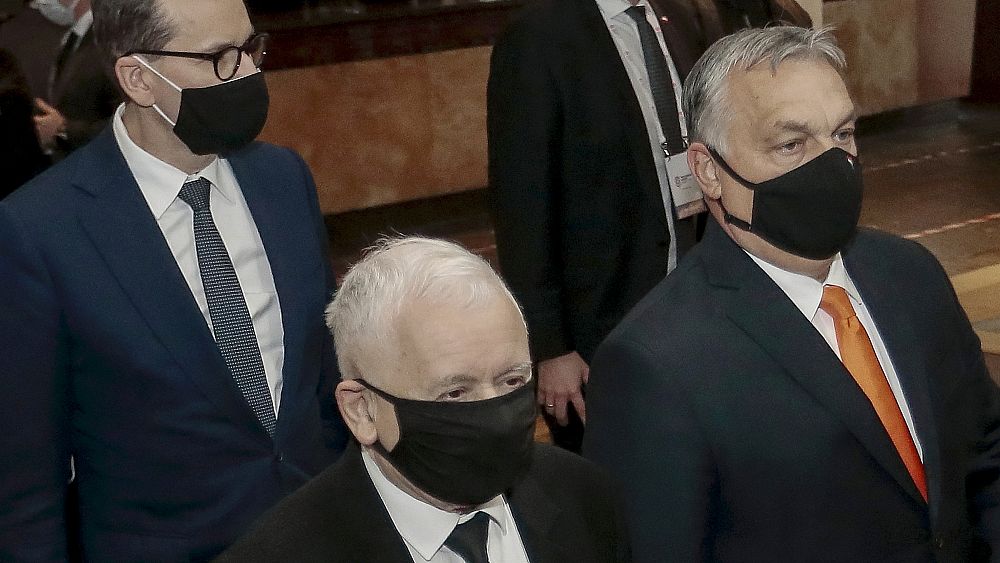
Leaders of European far-right and populist parties failed to agree on founding a new political group in the European Parliament over the weekend, laying bare their differences.
France’s Marine Le Pen and Hungary’s Viktor Orbán were among those who attended a high-level meeting in Warsaw over the weekend, but left with just a statement highlighting the need for “closer cooperation” against the power of the Brussels institutions, rather than the formation of a European far-right political family.
If the radical-populist parties were to unite, they could form the third-biggest grouping in the European Parliament, which would give them considerable influence within the EU institution.
But this time around, that prospect was not enough to force them together.
Often in European discourse, these far-right parties and bunched together, but despite agreeing on issues of national sovereignty, migration and Euroscepticism, there are many things that push them apart.
According to Dániel Hegedűs, an analyst at the German Marshall Fund, the Polish government is reluctant to join any EU-wide populist group because they could lose influence within the European Parliament, given that they are the largest party within their current European Conservatives and Reformists (ECR) group, which the British Tories were members of prior to Brexit.
“While the Identity and Democracy [far-right grouping] and its member parties are largely isolated in the European Parliament, the ECR Group and especially Law and Justice isn’t,” Hegedűs told Euronews. “They have rapporteurs and shadow rapporteurs in the European Parliament…and also a committee presidency.”
Another significant dividing line is on Russia.
While France’s Le Pen has close ties with Putin, the Law & Justice party has frosty relations with Moscow at best.
There are also internal divisions like in Italy between La Lega and the Brothers of Italy.
Hegedűs argues that in the short term, EU mainstream parties should not be concerned by any potential new grouping.
“The one thing which benefits all of the participants is that they can shape the political agenda. They can get media attention. And that’s the whole reason behind these repeated radical right forums throughout the year, which always fail to produce any kind of tangible results,” Hegedűs said.
The parties involved say they will organise their next conference in Spain within the following months.

